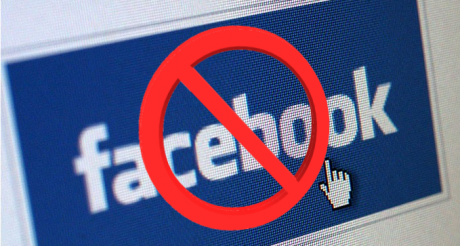University campus ban on social media for one week

Provost Eric Darr of the Pennsylvania Harrisburg University of Science and Technology has sanctioned a week long blackout on social media access for all students on campus, in an 'academic exercise' to see how the students cope.
Darr, which when interviewed by NPR, explained that though he cannot restrict off-campus students and access through mobile devices over the cellular networks, all campus computers and wireless networks would restrict access to Twitter, Facebook and instant messaging ports and protocols.

As an industrial psychologist, Darr is adequately qualified to consider the evaluation of behaviour on industry and the workplace. As students hold back on immediate employment by attaining university accreditation, now seems the perfect time to trial this theory that social media may be damaging - or not, to the workplace.
Not all students at the university will be banned from social media however. This will allow a comparison to be drawn up in the form of written academic essays based on their experiences, to potentially find better ways of communicating for the right thing.
Students and the Generation Y as a whole have adapted their ways of communicating by taking advantage of what is readily available to them. The argument of "which came first: the chicken or the egg" can be used in this instance too; mobile technology and always-on access to friends, statuses, social media and online content have been forced upon us by the manufacturers. We're not complaining, though. As humans by nature we adapt to our evolving surroundings and social networking by far takes advantage of this.
The superficial ties between acquaintances and not friends per se could dilute the friendship experience, something that social media critic Jaron Lanier explains. Some use social media to communicate on a mass scale with hundreds, thousands or millions of people, whereas some take the more conservative approach by limiting their online spread to their pre-existing 'vetted' friends.
More often than not, and I suspect the vast majority of people who use social media and instant communications, only pull back from the constantly updating experience when they suffer a negative social blow; an online version of a major friendship group bust-up, for example.
This isn't the first time that this 'experiment' has been enacted. It was only a few months ago that a prominent figure of my friendship group was forced off Facebook with a password change in order to save her undergraduate degree. Facebook had simply taken over her life. We all took advantage of this in true student prank style, by posting lewd, highly offensive and pornographic images to her wall for her return to the online community.
Perhaps the campus wide ban on social media will rekindle the phone call? I highly doubt it to be frank. I do however believe that most students cut off from their online safe havens will spend most of their time trying to circumvent the restrictions over anything else.